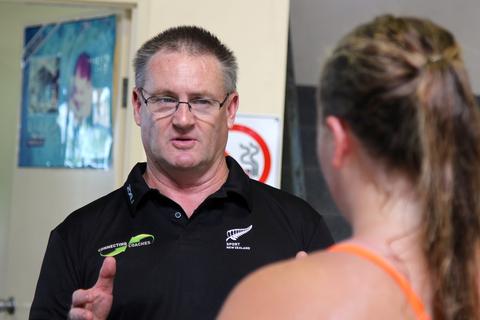Responsibility for Performance in Professional Football: Where the Buck Stops!

Whether teams win or lose, people want to know who is responsible.
Just take a look at the after match interviews.
The media want to talk to the players who were responsible for scoring the winning goal, the winning try, the incredible touchdown that won the game or the unbelievable conversion kicked from the sideline, while the final siren was blowing, in the pouring rain with a hostile crowd chanting “miss-miss”.
The media want to talk to the coach and ask why the team lost and to find out who was responsible for the lack of effort, lack of energy, poor execution of team strategies, poor skill execution under pressure, the missed tackle and the blown opportunity.
And it continues over the year to the end of season review process where people aim to pin responsibility for the team’s poor record on one person, one system, one coach, one player, one aspect of preparation…….
Professional football is very much about responsibility, so let’s try and clarify who exactly is responsible for performance in professional football: where the buck stops.
Some definitions to get us started.
Because I have readers from all over the world where the word “football” means different things to different people, let’s define some important terms:
Responsibility: My favourite definition of responsibility comes from the Dictionary of Military and Associated Terms. US Department of Defense 2005.
Responsibility is……”The obligation to carry forward an assigned task to a successful conclusion. With responsibility goes authority to direct and take the necessary action to ensure success – See also accountability“.
In other words, responsibility means you will take action and make things happen with the goal of achieving success and you will be accountable for those actions.
Season: In professional football, the season commences on the first day of pre-season training and ends with the final siren of the last game / match the team plays.
Team: The “team” has been traditionally defined as just the players. However, in professional football now, where many non playing staff are being paid a lot of money to help produce a winning outcome, the “team” is the players, the coaching staff, the sports science and sports medicine staff, the team management, the strength and conditioning staff and the special skills staff (e.g. technology professionals, IT support, psychologists, medical specialists etc). In other words, if you accept a role working with the organisation where your actions directly or indirectly contribute to the planning, preparation and / or performance of the players, you are part of the team and as such you are in part responsible for the team’s performance.
In a perfect world……..
In a perfect world, everyone in a professional football team environment, from the star player to the guys who clean the boots, drive the team bus and pick up the towels, would willingly accept responsibility for every aspect of their own preparation and performance, on and off the field, every day.
But it aint no perfect world.
When times are good, everyone wants to be seen as part of the team. It’s great for the ego. It’s great to hand someone a business card with “Operations Manager, Wolves United” on it and see the envy in the eyes of the person you handed the card to who’s own professional life involves sitting behind a desk processing bank receipts.
People want to be associated with professional football players because of the prestige and kudos involved but, who is prepared to stand with those same players when the team is losing and say, “I also accept responsibility for the team’s performance”?
Whilst it has been the practice to place the full responsibility for the performance of the team on the players and the coaches, in professional sport, it is more appropriate to consider an extended responsibility model where everyone associated with the team assumes a level of responsibility for the team’s performance.
OK – so who is responsible and when?
There are four key periods in every football season where the degree of responsibility shifts within the team, i.e. where some team members have greater responsibility for performance than other members.
This does not mean that all the responsibility for preparation and performance falls on one group: it just means that during specific times in the season some people are more responsible for the team’s performance than others.
The key to understanding why football teams win or lose is to first understand who is responsible for the preparation and performance of the team at key points in the season.
Season Key Point 1 – the first 25% of the season: Responsibility – Strength and conditioning staff / sports science team.
The results of the first 6-8 games of a football season are largely the responsibility of the strength and conditioning staff and the sports science team.
It is their responsibility to take the gamble on how much or how little pre-season training to do and the results of early season games are a reflection on how good their gamble was.
And it is a gamble. No one really knows with 100% certainty what the standards and intensity level of the competition will be in the coming season. But strength and conditioning staff and the sports science team get paid to increase the odds in favour of the team.
Many teams over-train in the off season and look brilliant during the early season games, then look tired, flat and fatigued later in the year. Other teams who take a more conservative approach to pre-season training may start slowly but build momentum progressively over the season towards the finals.
Season Key Point 2 – the next 50% of the season: Responsibility – Coaching Staff.
Once the influence of the pre-season preparation has run its course, the responsibility for the next 50% of the season belongs to the coaching staff.
Once players have gone through the first 25% of the season they are “match-fit” and “game-hardened” and at the peak of their playing potential.
It then comes down to the coaching staff’s ability to implement the technical, tactical and strategic aspects of performance to keep the team in a winning position.
Season Key Point 3 – the next 15% of the season: Responsibility – Medical team and rehab / pre-hab Staff.
As the finals get closer and the majority of players in the team are showing signs of fatigue and injury, the medical team and re-hab / pre-hab staff must accept the greatest degree of responsibility for the team’s performance.
In every code of football, the finals series is generally won by the team who is able to have more of their best players on the field at or near full health more often.
That’s why Clubs focus so much on recruitment and chasing preferential “draft” selections: not just to get the best players but to have the best players deliver great performances when it really matters, i.e. in important games.
Having a team of super stars who are never on the field due to injury or who are on the field but never at full health is like having a Ferrari in the driveway with two flat tyres and a blown engine. Sure, if it is working it can beat anything but while it’s broken a three year old on a skateboard can go faster.
Season Key Point 4 – The finals – i.e. the last 10% of the season: Responsibility – Players.
And, then responsibility for the big games at the end of the season shifts to the player group.
The role of the Strength and Conditioning / sports science staff, the Coaching Staff and the Medical team and rehab / pre-hab Staff for the first 90% of the season leading up to the championship games has been to prepare the players to master the important moments and win the critical games.
The non-playing members of the team have spent 90% of the season helping players to realise their full potential as athletes and as people so that when it really matters the players have the physical, mental, technical and tactical abilities to win when it counts.
If the non-playing members of the team have done their job……….the players will do theirs!
Summary:
- If you want to increase your success rate in professional football, you must clearly understand the concept of responsibility: what it is, who owns it, where it is and what it means;
- Anyone who is associated with the performance of the player group, directly or indirectly, must accept a level of responsibility for the team’s performance;
- Whilst everyone associated with the team should accept full responsibility and accountability for their own performance every day, there are times during the season where the primary responsibility for the team’s performance shifts between team members.
Note: The Sports Coaching Brain conducts workshops and seminars on the Extended Responsibility Model for football teams and professional sporting teams.
Contact us now.
Wayne Goldsmith



0 Comments